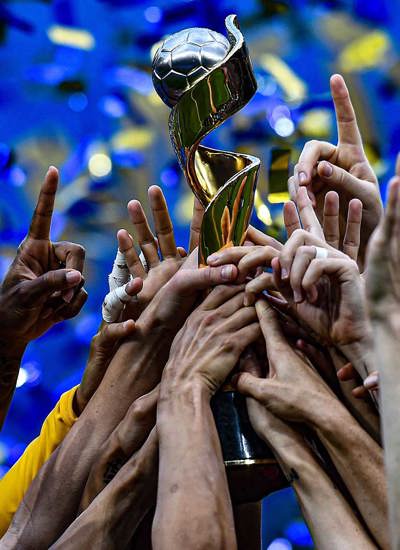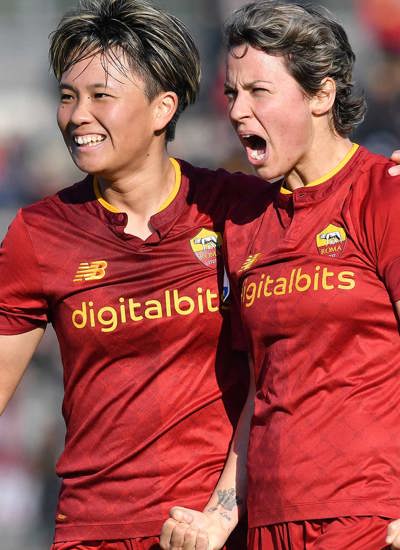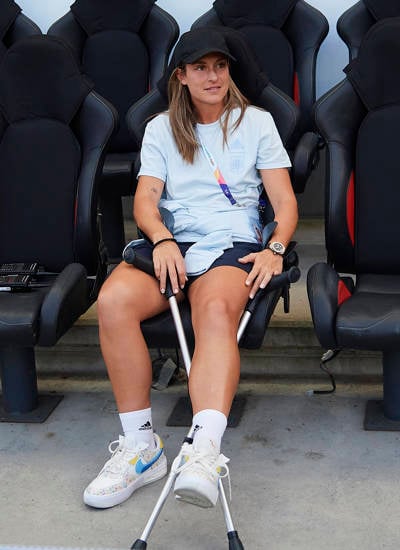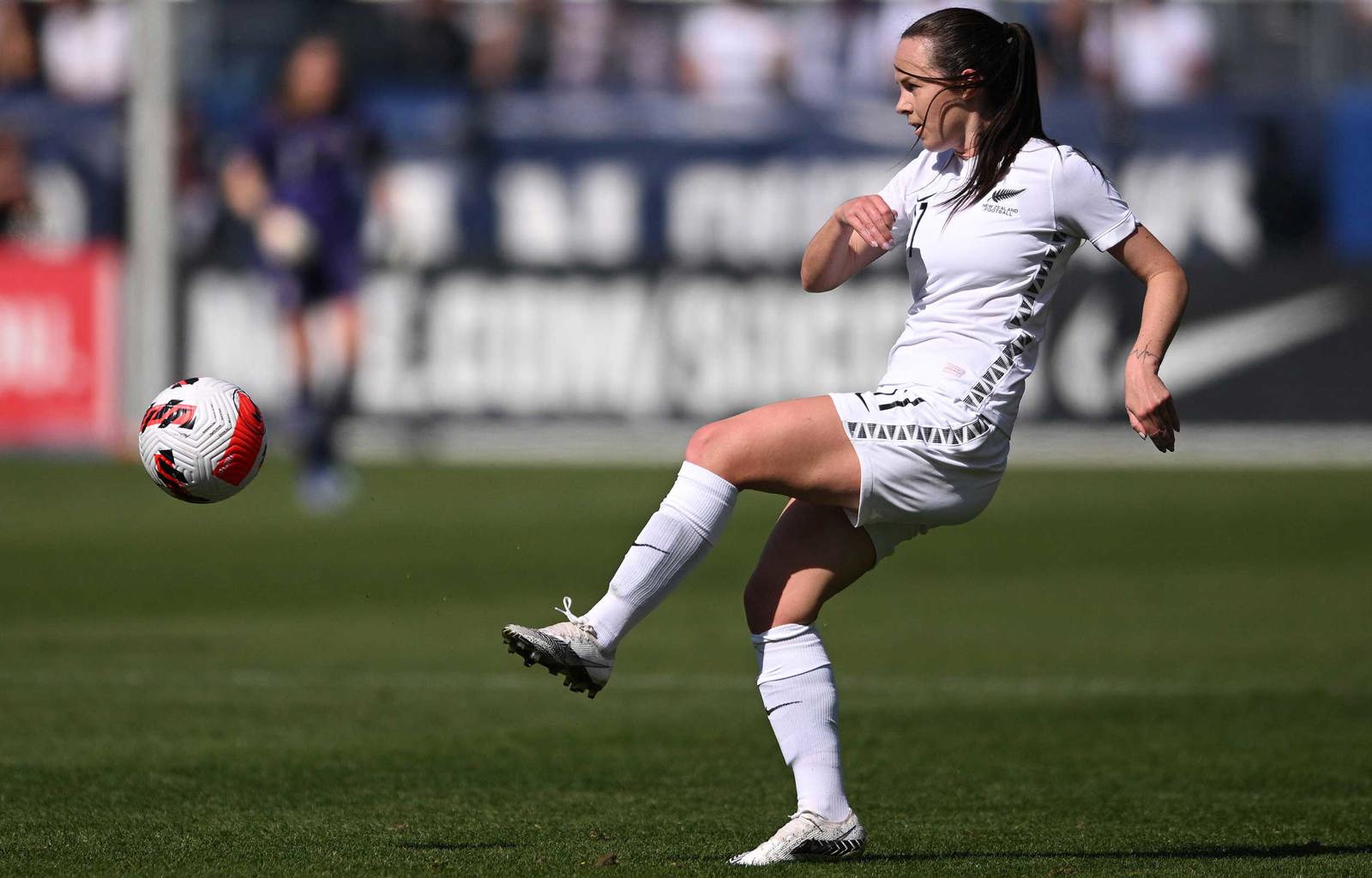

About
Olivia Chance
According to FIFPRO’s Player Workload Monitoring tool, Celtic and New Zealand midfielder Olivia Chance has travelled further than any other player to represent her club and country between August 2022 and April 2023, tallying more than 145,000 kilometres across 12 trips.
When FIFPRO tagged me in a social post the other week, I was surprised to see that, according to their research, I was the most travelled footballer in the world. I started thinking about what this really means as a player and how any travel has the potential to affect us both mentally and physically – never mind the kind of miles that I’ve been covering this season.
Don’t get me wrong, I’m not complaining. I like my life here in Scotland (lack of sunshine aside!) but realistically as a New Zealander, if you want to play professional football, distance is required. Travel is just something you have to get used to. It doesn’t make it any easier though. You can be on your first flight for eight hours, then have a two-hour stopover, before going again for another 17 hours until you get there. Then there’s the return journey.
Sure, business class makes it easier, but the real travel issues I think need to be dealt with are the clear disparities that can be seen between the men’s and women’s game.
There are more international windows in women's football, meaning there is more travel for women’s players. As much as I love playing at home and I want to be there as much as I can, I do think efforts could be made from both FIFA and the association to centralise our international duty on occasion, so that players don’t need to travel quite so far each time. It would help ensure players can perform to the best of their ability for their countries on arrival, and their clubs upon return.
In February I had to leave international duty early to make a club game on the Friday and about 36 hours after landing, I was on the pitch playing against Rangers, which is a massive game for Celtic. It’s a fixture that comes with a lot of pressure and definitely not one I wanted to miss.
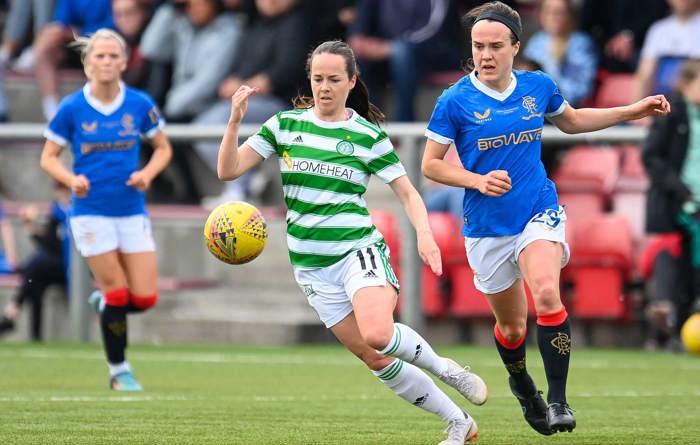
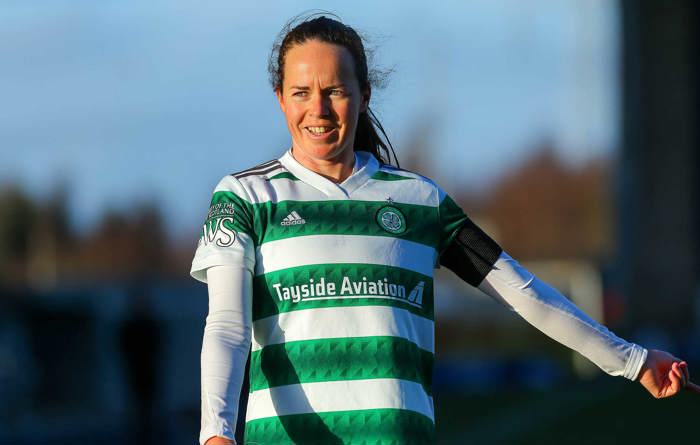
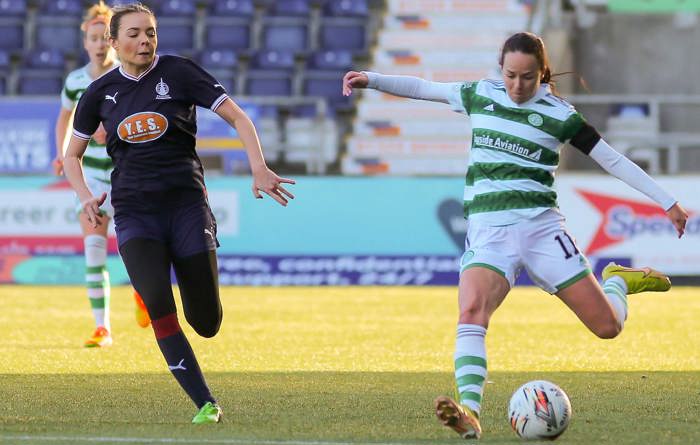
I didn't even have time to consider how exhausted I was. I just had to get my head down and concentrate on the game; especially playing in the pivot role that I do in midfield, you need to be absolutely focused. In the end it was a comfortable 3-0 win for us, and I managed to play the whole game, so mentally I was delighted with the outcome. In hindsight, though, my body probably wouldn’t thank me for it. It wasn’t until two days later, after the excitement had worn off, that the jet lag really hit me and I had time to process just how much my body clock had been affected, and the toll that the travel had taken on me.
Sometimes that’s just part of the game, but we should be taking every precaution to protect our bodies in these circumstances. I don’t think these kinds of turnarounds are nearly as prevalent in the men’s game as they are in the women’s. There’s a real growing platform for women’s football and we’re seeing a great product that’s being delivered, which is amazing to see, but I do feel that we’ve skipped some steps in getting to where we are.
The investment in women’s football just isn’t the same as it is in the men’s – and I’m not even talking about pay, but just access to the basic facilities and care. It feels like we’ve made the jump into marketability too quickly without considering the building blocks that should have been part of getting us there.
We’re playing more games but without adequate medical staff to help us recover quickly; we’re training hard but without the gym facilities that are available to our male counterparts; and, in some cases, we’re playing our best football on substandard fields.
For something to grow healthily, it needs proper care. Unfortunately, I think this hasn’t been the case in women’s football over the last couple of seasons. More and more players are picking up significant injuries that can see them miss months or even a year of their prime football days, which ultimately affects the product that a team can deliver to its fans. Risks are being taken with women’s health that wouldn’t be tolerated in the men’s game, and I don’t think it’s too much to ask to be treated equally as athletes.
Even looking towards the World Cup this year, a lot of teams have key players that are not going to be available for the tournament due to injury, and I think we need to take a look at why, for example, there are so many women’s athletes with ACL injuries right now. It’s sad to see because for a lot of us, this is the pinnacle of our careers. Everyone wants to be there and showcase their game to the best of their ability.
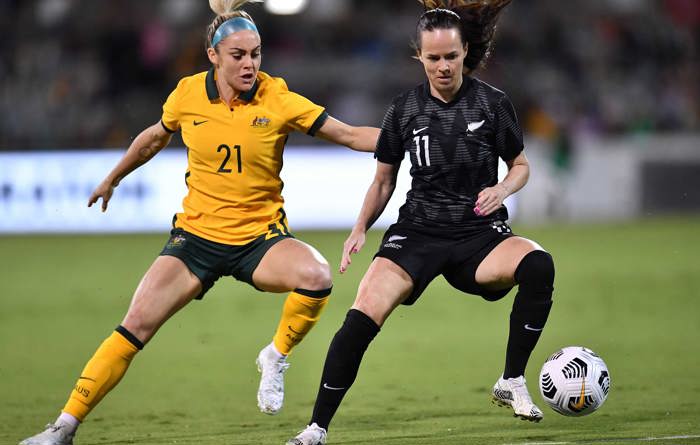
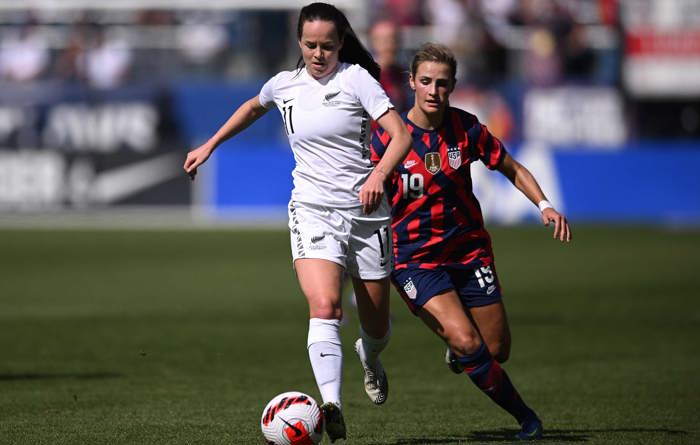
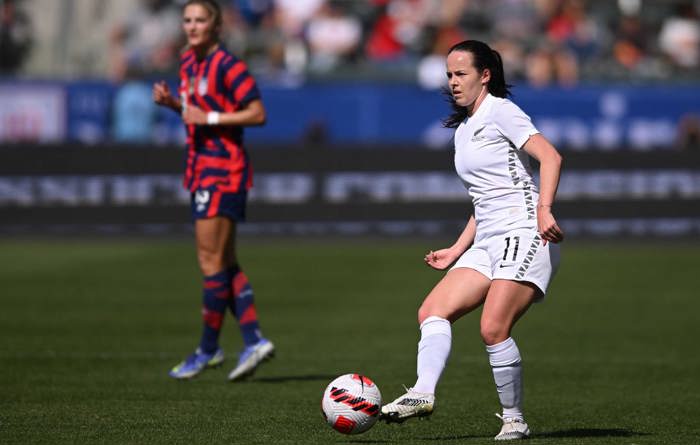
I’m so excited to be part of a World Cup on home soil; to have everyone experience how beautiful New Zealand is, how chill the people are, and to have everyone cheering us on. It’s going to be special. However, part of me is wondering how all the players are going to cope with, what is for most of us, such a huge journey. Travel is definitely one of those things that, if not counteracted carefully, can have a huge impact on your health as a player, and I think it can be a huge shock to the system.
New standards have been introduced that will see women receive equal travel and accommodation as in the men’s tournament, which should help offset things. But I also hope that each and every player is given time to adjust to their surroundings before being expected to compete at the highest level.
The measures taken to ensure the best possible performance for the men should absolutely be applied to the women’s game. It’s encouraging that at this World Cup, women’s players will now have their own hotel room during the tournament, for example, just like at the men’s World Cup. While I have a great roommate and enjoy spending time with her, for some athletes it can be hard sharing their downtime routine with another person. If the men need space to prepare themselves for a match, then the women do too – it’s that simple.
I’m 29 now and one of the older players in my team. I see it as my responsibility to push for these changes and to call it out when I see blatant inequality. I understand that not everyone may process things the same as I do, but I have been exposed to similar situations enough times to appreciate the need for a change. Even if I don’t get to see the benefit, I want to leave the women’s game in a stronger position by the time I retire.
Yes, flying 145,000 kilometres in one season is a lot and I would personally love to see that counteracted, but even before we start having that conversation, I would rather see every single women’s player being treated better – whether they have to travel four hours for an international fixture or 24.
For us, it's about having the same opportunities; running on the same blades of grass, training in the same gyms, being treated by professionals with the same experience. The resources are there, in some cases it’s just the respect that’s missing.
